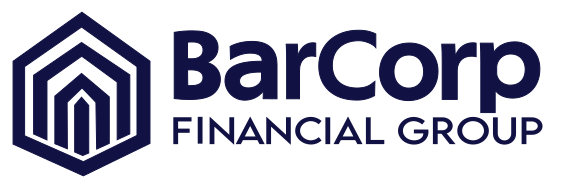The best mortgage rates in Florida USA. 2024. The average interest rate for a 30-year fixed mortgage in Florida is around 5.97% in 2024. If you’re considering refinancing, the rate may be slightly higher at 6.35%. The rates for different loan types vary; for example, a 15-year fixed mortgage rate is generally lower than a 30-year one. For VA loans, the average APR for a 30-year fixed mortgage is 5.53%, which is one of the lowest available options in the state.

Understanding Mortgage Rates in Florida
Factors That Influence Mortgage Rates.
- Loan Type:
Mortgage rates in Florida vary based on the type of loan. The most common types include:
- Conventional Loans: Not backed by the government, these loans are often used by borrowers with good credit and stable income. Rates for conventional loans in Florida hover around the national average.
- FHA Loans: Insured by the Federal Housing Administration, these loans are popular with first-time homebuyers because of their lower down payment requirements. FHA loans generally have slightly higher interest rates compared to conventional loans.
- VA Loans: Available to eligible veterans and active-duty military members, VA loans often offer some of the lowest mortgage rates. In Florida, the average APR for a 30-year fixed VA loan is around 5.53%, making it an attractive option for those who qualify.
- Adjustable-Rate Mortgages (ARMs): ARMs typically start with a lower rate than fixed-rate loans, but that rate can fluctuate over time. A 5-year ARM in Florida currently averages around 7.52%, but this rate can change based on market conditions.
- Credit Score:
Your credit score is a major determinant of the rate you’ll be offered. Borrowers with higher credit scores qualify for better rates. In Florida, if you have a credit score of 740 or higher, you might secure a rate closer to 6.38% for a 30-year fixed mortgage. Conversely, if your credit score is below 680, you could be looking at an APR closer to 6.89%. - Down Payment:
The size of your down payment also impacts your mortgage rate. A larger down payment reduces the lender’s risk, which can help secure a lower rate. In Florida, putting down 20% or more could result in more favorable rates compared to lower down payments. - Loan Term:
The length of the loan term also affects the interest rate. In general, shorter-term loans have lower interest rates but higher monthly payments. A 15-year fixed mortgage rate in Florida, for example, is typically lower than that for a 30-year loan, averaging around 5.36%. Shorter terms mean less risk for the lender, which is reflected in the lower rate.
Finding the Best Mortgage Rates.
- Compare Multiple Lenders:
To find the best mortgage rates in Florida, it’s essential to compare offers from different lenders. Banks, credit unions, and online lenders may offer different rates and terms, depending on their policies and the borrower’s profile. Many websites offer mortgage comparison tools that allow you to input your details and get customized rate quotes from multiple lenders. - Shop Around for Discounts:
Some lenders offer rate discounts for various reasons, such as signing up for automatic payments, being a current customer, or even opting for a shorter loan term. In Florida, lenders might offer points — a way to buy down your interest rate by paying an upfront fee — which could make a significant difference in the total cost of the loan over its lifetime. - Consider Government Programs:
Florida offers several state-sponsored programs that can help homebuyers reduce mortgage-related expenses:
- The Homebuyer Loan Program: Aimed at first-time homebuyers, this program offers assistance that can lower the effective interest rate.
- The Florida Assist Program: Provides down payment and closing cost assistance, which can make buying a home more affordable and may lead to more favorable rates.
- Lock in Your Rate:
Given that mortgage rates can fluctuate frequently, once you find a competitive rate, it may be wise to lock it in. Rate locks can last anywhere from 30 to 90 days, ensuring you’re protected against rate increases while you finalize your mortgage process.
Different Types of Mortgage Rates Available.
- Fixed-Rate Mortgages:
Fixed-rate mortgages are popular because they offer stability, with the interest rate remaining constant for the entire term of the loan. In Florida, a 30-year fixed-rate mortgage is currently averaging around 5.97%. This stability allows borrowers to budget effectively, knowing that their monthly payments won’t change. - Adjustable-Rate Mortgages (ARMs):
ARMs typically start with a lower rate compared to fixed-rate mortgages, but the rate adjusts periodically based on the market index. Common ARM products include 3/1, 5/1, and 7/1 ARMs, where the rate is fixed for the initial period (3, 5, or 7 years) before adjusting annually. In Florida, the average rate for a 7-year ARM is currently around 7.46%. These loans may be suitable for borrowers who plan to sell or refinance before the adjustment period begins. - Interest-Only Loans:
Some lenders in Florida offer interest-only loans, where you pay just the interest for an initial period before starting to pay down the principal. These loans can be riskier, as the monthly payments can increase substantially after the interest-only period ends. They’re often used by investors or buyers who expect their income to increase significantly in the future.
Tips for Getting the Best Mortgage Rate in Florida.
- Improve Your Credit Score:
Your credit score is a key factor in determining your mortgage rate. Paying off existing debts, reducing your credit utilization, and ensuring on-time payments can help boost your credit score, potentially leading to better mortgage offers. - Save for a Larger Down Payment:
A down payment of 20% or more can significantly reduce your mortgage rate. It not only lowers your monthly payment but also eliminates the need for private mortgage insurance (PMI), which is required for down payments below 20%. - Opt for a Shorter Loan Term:
While the monthly payments are higher, shorter loan terms like 10 or 15 years typically come with lower interest rates. If you can afford the higher monthly payments, this can save you a considerable amount of money in interest over the life of the loan. - Get Preapproved:
Getting preapproved for a mortgage helps you understand what rates you might qualify for and strengthens your position when making an offer on a home. Lenders in Florida will assess your financial situation, giving you an idea of the rate you can expect, which also makes the homebuying process smoother. - Consider Paying Points:
Mortgage points allow you to pay an upfront fee to lower your interest rate. In Florida, buying points can be a good strategy if you plan to stay in your home long-term, as it reduces the amount you pay in interest over the loan’s life.
Current Market Trends in Florida.
The mortgage market in Florida is influenced by broader economic trends, such as Federal Reserve policy and inflation rates. As of October 2024, mortgage rates have shown a slight decline compared to earlier in the year, which could indicate favorable conditions for buyers. However, rates are still sensitive to economic indicators, and any changes in federal interest rates could lead to corresponding changes in mortgage rates.
The housing market in Florida remains competitive, particularly in metropolitan areas like Miami, Orlando, and Tampa, where demand continues to drive prices upward. Buyers looking to secure the best mortgage rate should act promptly, especially in hot markets where homes often sell quickly.
Conclusion.
Finding the best mortgage rates in Florida involves understanding the different loan types, comparing lender offers, and making financial preparations to secure the best terms. As of now, average rates for a 30-year fixed mortgage in Florida stand around 5.97%, with lower rates available for those eligible for VA loans. Improving your credit score, saving for a larger down payment, and shopping around are essential strategies for securing the best rate. Given the ever-changing economic landscape, staying informed about rate trends and acting decisively can help ensure you secure favorable terms for your home loan.

